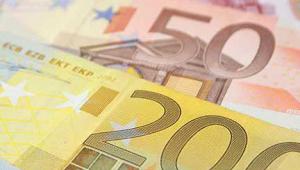By Mike Thatcher | 18 July 2012
The current economic situation in the US and the eurozone is more serious than the Great Depression of the 1930s according to a leading economist.
Andrew Roberts, head of European rates strategy at RBS, said that the big issues were low or negative growth, high long-term unemployment rates and increasing debt burdens.
‘People talk about recovery, but to me we are in a much worse shape than the Great Depression. The augmented unemployment rate in the US is running at just under 25%, 22% or so, but unemployment only peaked at 25% in the Great Depression.’
Roberts was addressing a CIPFA Treasury Management Network special event on the impact of the eurozone crisis. He suggested that the US economy faced recession next year as it hits a ‘fiscal cliff’, with tax cuts coming to an end and spending reductions kicking in.
‘Even the Congressional Budget Office, probably the most bullish forecaster in the world, is forecasting a US recession in the first half of next year. It’s amazing stuff.’
He told delegates that Greece might have to leave the euro in September when it is next visited by the troika (the European Union, European Central Bank and International Monetary Fund).
‘I wouldn’t withdraw the prospect of Greece leaving in September. Certainly, we’ve got a high probability of Greece leaving within the next two years.’
But Spain and Italy were in a far worse position than Greece, he said, with contagion likely to spread across the continent.
‘If bad things happen to Spain, then bad things happen to Italy. If bad things happen to Italy, then bad things happen to France. If bad things happen to France, then bad things happen to the UK.’
The debt situation in Spain was particularly worrying given its current negative growth performance. Roberts pointed to data published on Monday from the IMF revising upwards the country’s debt to GDP ratio.
In April the IMF predicted the ratio would be 84% in 2013. But it has now increased this figure to 96.5%, an increase of 12.5 percentage points.
‘This is bombshell stuff,’ said Roberts. ‘How on earth can you have a two-month change in your debt to GDP ratio of 12.5%?’













